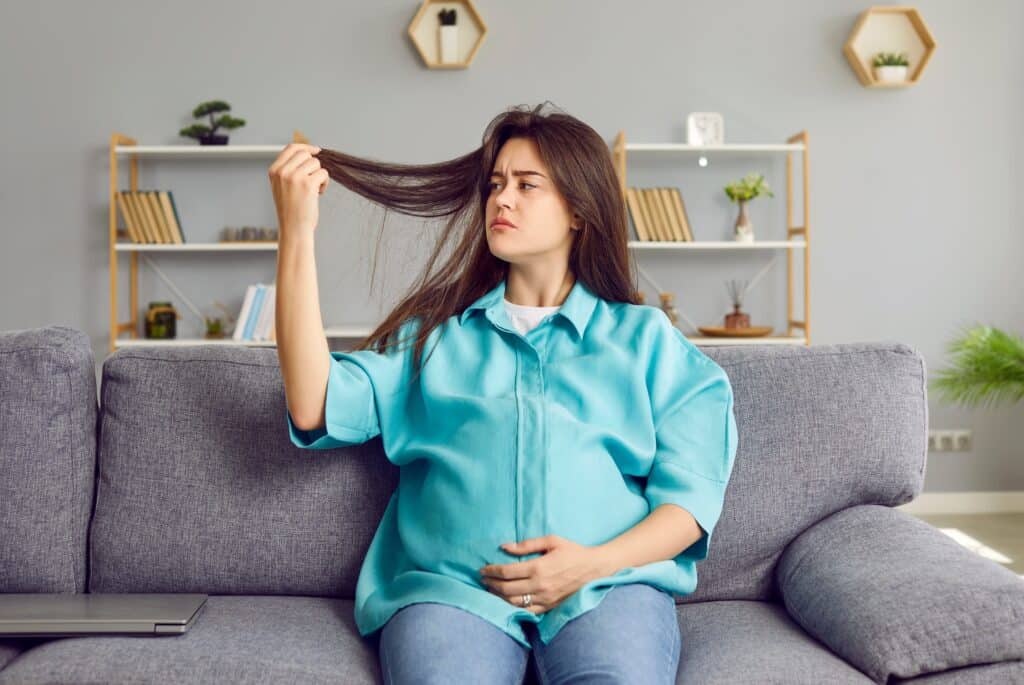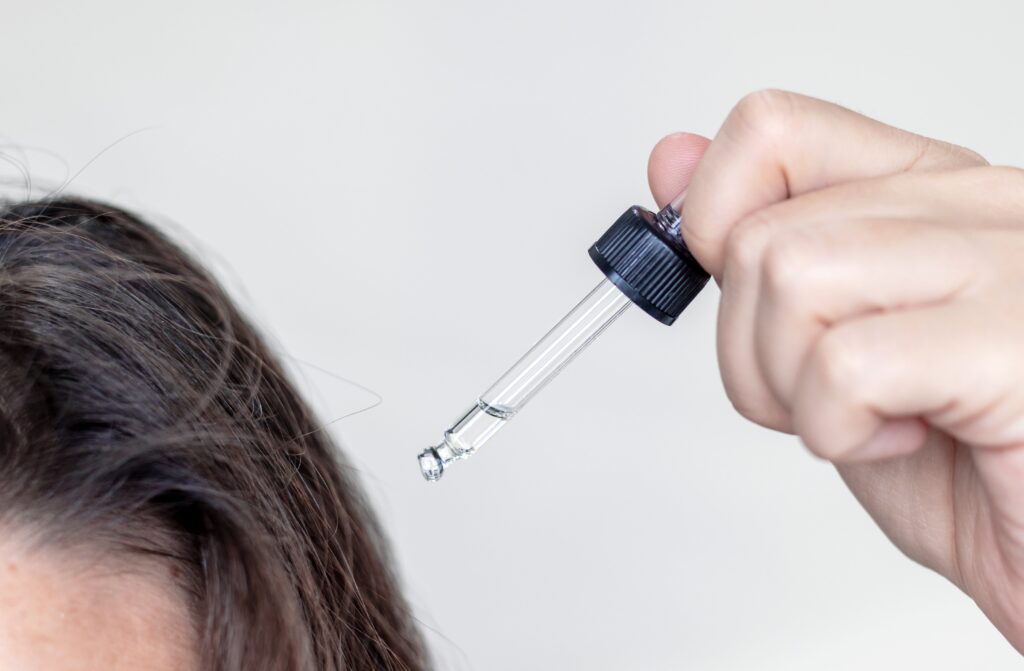For most women, hair grows thicker and shinier during pregnancy. However, the reverse can also be the case. Severe hair loss or hair thinning during pregnancy is also relatively frequent and usually nothing to worry about. Also, in the vast majority of cases there won’t be any permanent hair loss.
Pregnancy involves big changes for a woman’s body. The body releases more hormones, especially estrogen, known as the “women’s hormone.”
Usually, the result of more oestrogen is that the hair grows more fully and appears more beautiful and healthier overall. This is because the hair growth cycle changes during pregnancy. Indeed, some women can experience hair loss during early pregnancy, and later, because fewer hair follicles than usual enter the telogen phase, or resting phase.
After the birth of the baby, the levels of oestrogen in the body then return to normal and many of the extra hairs fall out at the same time. Many women experience this type of hair shedding, known as postpartum hair loss.
However, the opposite can also occur to the hair during pregnancy. A few women experience hair loss. Too many hair follicles enter the resting phase at once, a condition known as telogen effluvium.
Levels of estrogen and other hormones are not always to blame for this. There can be other factors at play which causes the hair to fall out.
Reasons for hair loss during pregnancy

Hormones
Severe hair loss during pregnancy is rare but is not in itself a major cause for concern.
The hormone progesterone, produced by the corpus luteum, is suspected of being a factor in increased hair shedding. This hormone works together with oestrogen to regulate pregnancy.
This interaction can have an influence on hair growth and quality, both positively and negatively. For example, dry hair can become even drier and break more easily.
In addition, it may be that hair synchronises its growth phases due to the influence of the hormones levels. In this way, too many hairs enter the resting phase together and therefore fall out at the same time.
Contraceptive pill
A second factor that can lead to hair loss during pregnancy is ceasing to take the contraceptive pill. Women who have stopped taking the pill and then become pregnant relatively quickly often have to deal with hair loss.
One of the reasons for this is that the pill artificially keeps oestrogen levels high. If pregnancy then occurs, the oestrogen level in the blood is then usually not as high as it was when the pill was still being taken.
The hair can therefore fall out because, as we have already discussed, this hormone has a positive effect on the growth cycle.
Iron deficiency
Another cause of hair loss during pregnancy can be iron deficiency. During pregnancy, the growing child utilizes so much iron that the body requires up to 60 percent more of it. However, if insufficient amounts of this mineral are supplied, the body halts all non-essential functions that rely on iron but are not vital for survival.
This includes hair growth. Other symptoms that can indicate iron deficiency in the blood are pale skin, constant tiredness and – under certain circumstances – increased nervousness.
If you suspect you have a iron deficiency, you should consult a doctor immediately. The most common time for women to experience an iron deficiency is in the second trimester of pregnancy.
Another thing that can lead to hair loss during pregnancy is stress. Many expectant mothers put themselves under pressure during their pregnancy, especially when it is their first child.
This can have a negative effect on hair growth. Prolonged stress can cause diffuse hair loss even if there is no pregnancy.
Hair care during pregnancy

Finally, daily hair care also has an influence on hair growth. Normally, pregnant women do not have to change their daily hair care routine much, such as which shampoos and conditioners they use.
However, this does not apply to dyeing the hair. To this day, this topic is hotly debated. Even today, there is no scientific evidence that hair dyeing during pregnancy has a harmful effect on the foetus. In general, however, doctors advise against it.
However, if you do not want to give it up, you should at least use natural hair dyes during early pregnancy. This will help you prevent hair loss.
As a rule, hair growth should return to normal after pregnancy and the hair that has fallen out should grow back.
However, if it does not, this may be because the increased hair loss has revealed an already-existing type of hair loss such as female pattern baldness or alopecia areata. It may also have made other underlying hair health issues more apparent.
In which case, a hair transplant in Turkey can be the solution to restore the splendour of your old hair. However, no reputable hair doctor will do a hair transplant without first fully exploring the causes of hair loss.
Dr Acar and his team are happy to answer any questions you may have on this topic. The team at Cosmedica Clinic is expert in performing hair transplant for women and help them regrow hair.. Take advantage of a free, no commitment, consultation today.




